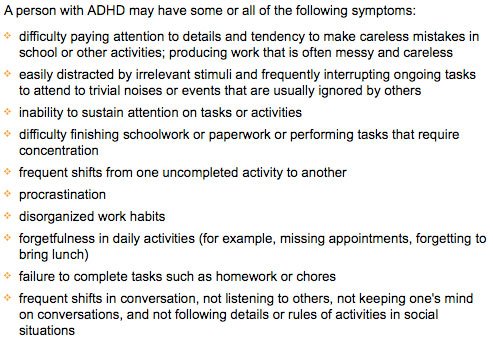5 Mistakes Legal Teams Make When Rolling Out a DMS.
Welcome to Legal Ops Briefs—inspired by the mot-r mindset, this blog series of 3-minute reads gives in-house Legal Ops quick, operational insights....

Attention Deficit/Hyperactivity Disorder (ADHD), more commonly known as Attention Deficit Disorder (ADD), is a neurological condition that has a genetic component and can be aggravated by environmental and physical factors. The negative characteristics of ADD include a tendency to procrastinate and miss deadlines, impatience, and an inability to focus among other traits.
There is now a newly recognized neurological phenomenon, which is a cousin to ADD, called Attention Deficit Trait (ADT):
“Marked by distractibility, inner frenzy, and impatience, ADT prevents managers from clarifying priorities, making smart decisions, and managing their time. This insidious condition turns otherwise talented performers into harried underachievers. And it’s reaching epidemic proportions.
ADT isn’t an illness or character defect. It’s our brain’s natural response to exploding demands on our time and attention. As data increasingly floods our brains, we lose our ability to solve problems creatively and handle the unknown. Creativity shrivels; mistakes multiply. Some sufferers eventually melt down.”
Edward M. Hallowell, MD
Overloaded Circuits, Harvard Business Review, January 2005
If ADT is growing at the personal level from factors at work, is it a stretch to think of organizations themselves as having ADHD? Have a look at the typical symptoms of ADHD and see if any fit:
My guess is that you'll see a lot of traits on that list that we've come to expect at our workplaces. No matter what industry or size, information overload is affecting us all:
Perhaps the biggest implication of our new speed is what this is doing to our lives, and in particular to our brains. Recently, I was in the boardroom of a government organization outside the U.S. that was in charge of regulating what should be a slow-moving industry. They were decades old, with around 10,000 employees and mountains of money. Their biggest challenge? "Our people are so overwhelmed, no one has any time to think, it's all too much," their executives explained.
David Rock, cofounder of the Neuroleadership Institute, a consultant and author of Your Brain at Work.
We all need to focus, shut down every day and decrease the amount of needless and useless information stimulation that is getting in the way of important and productive work.
See more from David's excellent article on the Fortune website.
Less Noise. More Signal.:
Get 7 to 8 hours sleep each night
Exercise regularly
Prioritize work into attainable, small lists
Focus in 90 minute sessions without distractions (phone calls, emails, texts) for thinking work.
Take regular breaks and walk around - have a meeting while walking rather than grabbing a coffee
Take your vacation days
Put down the smartphone at a specified time each day - and leave it off
Welcome to Legal Ops Briefs—inspired by the mot-r mindset, this blog series of 3-minute reads gives in-house Legal Ops quick, operational insights....
Welcome to Legal Ops Briefs—inspired by the mot-r mindset, this blog series of 3-minute reads gives in-house Legal Ops quick, operational insights....
Welcome to Legal Ops Briefs—inspired by the mot-r mindset, this blog series of 3-minute reads gives in-house Legal Ops quick, operational insights....